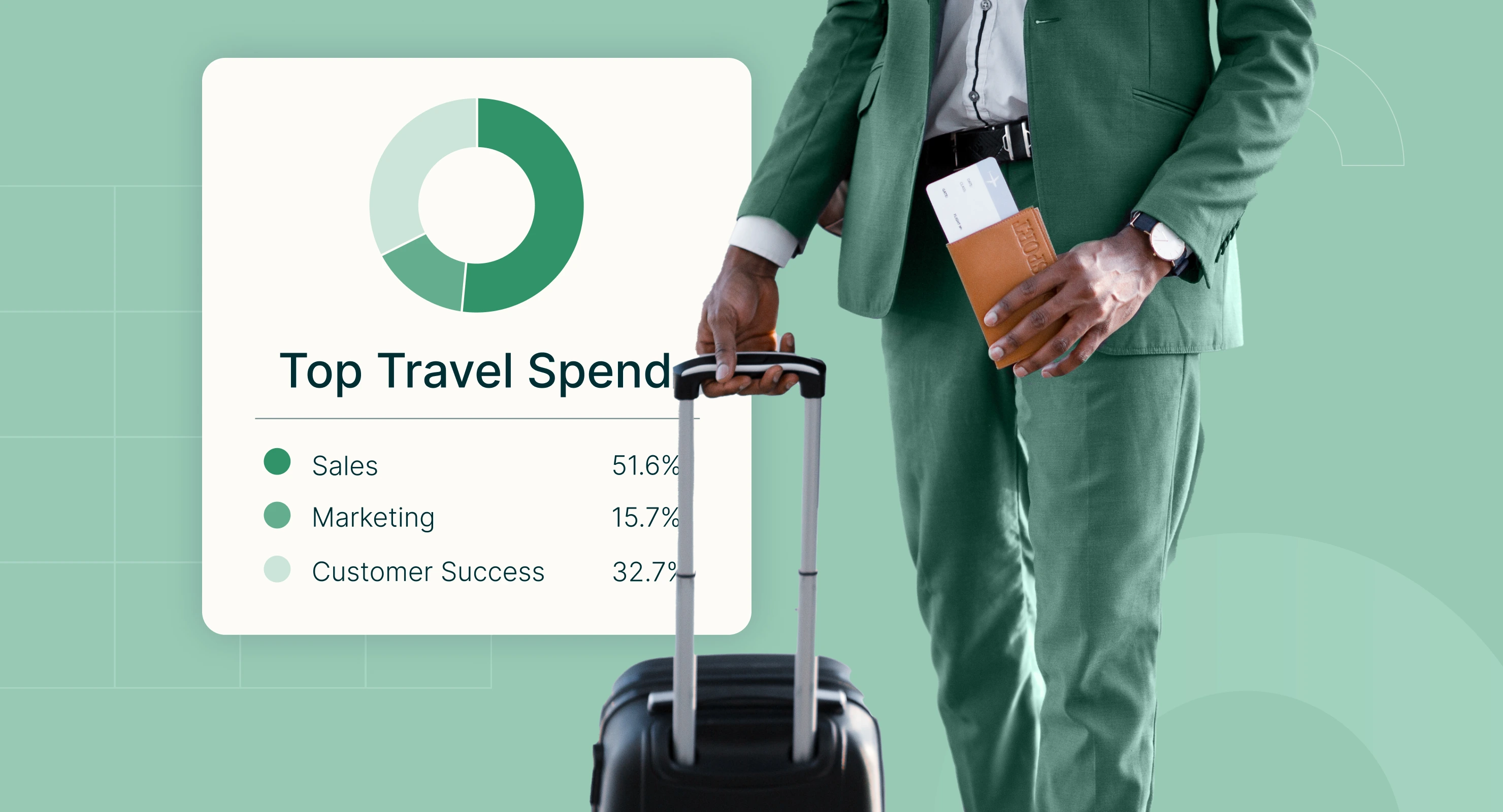
Spend Trends: 4 Reasons Corporate Travel Budgets Will Increase in 2025
Spend Trends is a Procurify editorial series that explores the current state of finance for a variety of industries through the lens of experts.
Just conduct your customer meetings via Zoom.
Keep your per diem to $30 per day for dinner.
Please, select the cheapest flight option regardless of layovers.
The global pandemic may feel like another lifetime ago, but the residual economic effects still linger in the corporate travel industry.
While travel for leisure has returned to pre-pandemic levels according to a recent study conducted by Deloitte, it has been the opposite for business travel. Companies across a variety of industries have significantly scaled back their travel spend. External economic factors such as inflation, the rise of remote work, and more stringent corporate budgets have contributed to the decline.
However, there are reasons for optimism. The Deloitte report also predicted that North American corporate travel spending is expected to grow by 14-15% in 2024 and 2025.
“We’re now on an upswing,” said Eric Holenka, Senior Vice President of Corporate Travel at Travel Edge, North America’s largest luxury-focused travel agency. “This increase is driven by economic recovery, pent-up demand for face-to-face interactions, and the recognition of travel’s value in building client relationships and attending industry events.”

Ready to take control of your company spend?
Discover how Procurify’s procure-to-pay software provides unprecedented visibility and control over your budgets, saving time and money that can be reinvested.
Although it is his job to promote and encourage corporate travel amongst his clients, Holenka (who has over 25 years of experience in the travel industry) has witnessed the ebbs and flows of the post-pandemic travel industry. And right now, he says it is flowing. Global business travel spending is projected to reach a record $1.48 trillion in 2024, surpassing the 2019 peak.
Holenka shared with Procurify his four reasons why budgets in the corporate travel space will surge in 2025.
1. Higher focus on events and client visits
Zoom fatigue is real. While virtual customer and client meetings continue to provide efficiency and cost savings, organizations are realizing that there’s a gap in developing personal connections.
“Companies are recognizing the value of in-person interactions, particularly for client relationships and industry events,” said Holenka. “Relationship-building is hard to duplicate over a monitor.”
The Deloitte report mentioned above states that 63% of business travelers are expected to attend at least one conference in 2024, while 20% of frequent travelers are making monthly client visits. The return-to-office trend is also driving a rise in corporate travel. Deloitte reports seeing a 15% increase in business travelers planning 6-10 tips in 2024 compared to 2023.
“To re-build that team camaraderie, company leaders are prioritizing team-building events and in-person meetings,” Holenka said.
2. Rise of "bleisure" travel

Traveling has been costly in 2024. Inflation has significantly impacted the prices of flights, hotels, and meals. Rising travel costs are one reason why roughly two-thirds of corporate travelers are extending business trips for leisure, a trend known as “bleisure.”
“Especially if you are traveling to a major city or tourist destination, it is a way to maximize your business trip,” said Holenka, noting that business travelers are taking advantage of the major costs like flights and part of their lodging are already covered. “Companies recognize that business travel can positively contribute to employee morale.”
Because Travel Edge caters to luxury travelers, Holenka has noticed that a growing number of their clients are allocating more funds to ensure comfortable travel experiences, especially for higher-level executives, to maintain productivity and job satisfaction.
“Travel remains a retention tactic,” adds Holenka.
3. Resourcefulness will continue
Companies may be investing more money in business travel, but there is a parallel trend in being budget-conscious.
According to Holenka, companies are still controlling their travel spend through various methods:
-
Reducing travel volume and implementing stricter approval processes,
-
Downgrading the class of transportation,
-
Downgrading accommodations, with some companies moving from four-star to three-star hotels,
-
Introducing cost control policies, with 96% of companies implementing such measures,
-
Focusing on high-ROI trips, particularly for salespeople and account managers,
-
Utilizing technology for expense reporting and travel booking to increase efficiency and reduce costs.
“We are seeing many budget-conscious companies take a scaled approach to a return to corporate travel,” said Holenka. “They like the idea of increasing business travel, but want to ensure there are processes to limit the spending damage.”
Another way organizations are being resourceful is through partnerships with credit card providers and rewards programs to optimize travel costs.
“For example, 61% of global business travelers are given corporate credit cards,” said Holenka. “These partnerships allow companies to accumulate points or miles, which can be used for future travel, upgrades, or other business expenses, making travel more cost-effective in the long run.”
4. Yes, AI is coming
AI is emerging as a tool in corporate travel management. While specific data on AI usage in budget setting and enforcement is limited in the corporate travel sector, according to Holenka, there’s growing interest in AI-powered solutions.
For instance, 14% of millennial travelers rely on generative AI tools to plan their trips. AI is being explored for personalized travel recommendations, predictive analytics for budget forecasting, and automated expense report processing, potentially revolutionizing how companies manage travel budgets and spend.
“I don’t see how the interest and enthusiasm for AI is any different in the corporate travel space,” Holenka said. “If AI can eventually assist in automating and simplifying the process, then it could absolutely impact travel budgets. Most likely, in a positive way.”
